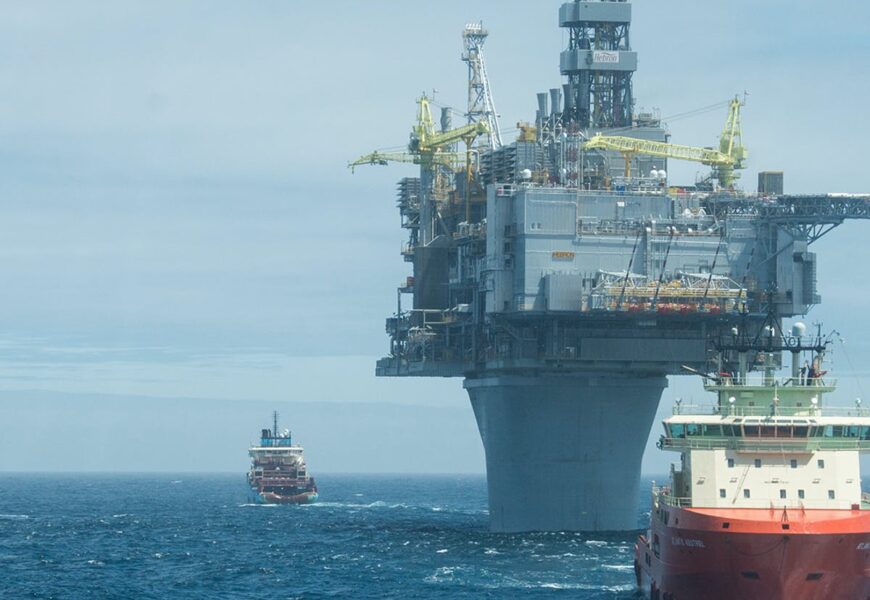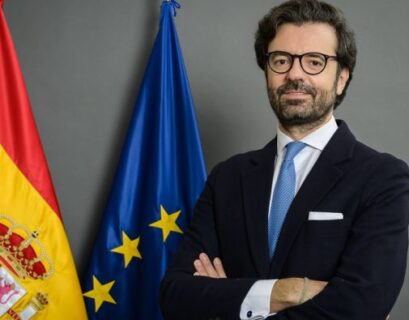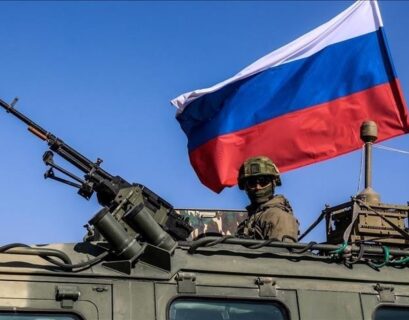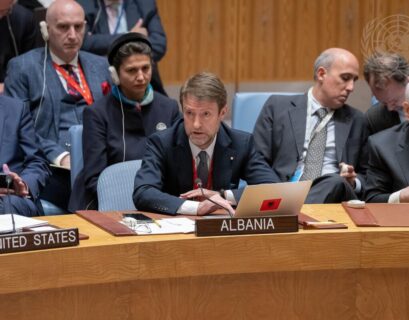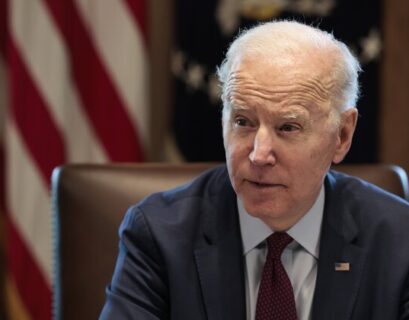ARBEN RAMKAJ
Although intrinsically linked as neighbor countries, Turkey-Greece state relations in the last decades have been difficult and tense. The dangerous escalation in recent days with potentially serious consequences for the region and beyond, undoubtedly carries old historical credits, but it is also mixed with elements of today’s real-politics, mainly based on economic interests.
A few years ago, both countries survived the overwhelming effects of the global economic crisis which started in 2007-2008. Greece, which almost a decade ago was on the verge of bankruptcy as a state, climbed out of the abyss in a very damaged situation.
Tourism alone, eventhough the main engine of the economy, can not help in a rapid recovery of the economy. Moreover, for 1 or more years due to the pandemic, this sector will not be able to give its maximum. On the other hand, Turkey did not follow the same percussion.
However as an integrated economy with the global one, it is strongly suffering the consequences of the economic crisis, which is now being aggravated by the Covid-19 pandemic. It is therefore understandable that both countries are very eager to utilize their natural resources.
In recent years, the world’s largest companies have drilled into the waters of the Eastern Mediterranean, revealing the existence of extraordinary reserves of oil and natural gas, worth trillions of dollars. The great economic potential of these resources is very obvious, and clalss for a comaprions with the the rich Gulf states and their permanent conflicts.
In this context, in recent years, the alliances between states have intensified as well as the signing of agreements on the division of Exclusive Economic Zones. But many of these agreements are overlapping with similar agreements, increasing the possibility of strong clashes.
What is quite obvious in this situation is the almost total domination of the national and geopolitical interests of different states and the lack of international institutions, which could play the role of a referee.
The EU, NATO or even the UN are generally remaining silent as two regional powers, both members of the world’s largest military alliance, are “fighting” with each other.
Key actors in global politics, the US, Germany or France, are acting separately, supporting either Turkey or Greece, without a prior coordination between them that would try to guarantee what should be in the best interest of the region, Europe and beyond: reducing tensions and securign dialogue and consensus between the conflicting parties to establish the basic principles, that might help to find a solution for every disagreement.
Turkish President Recep Tayyip Erdogan has been frequently accused by the Western media, especially after the ruling on Hagia Sophia, of strengthening nationalist sentiments in order to stay in power as long as possible, through the demand for the revision of the 1923 Lausanne Treaty between Turkey and Greece, which delineated the boundaries between the 2 countries.
In fact, Turkey’s complaints against this treaty are old and have dominated most of Turkey’s ruling elite. The Turkish army, landing in 1974 on the Turkish-occupied northern part of the island of Cyprus was largely driven by dissatisfaction with the partition of thousands of Aegean islands, by this treaty.
President Erdogan and his cabinet brought this debate back to the forefront in the autumn of 2016, calling for its revision under international law. In fact, his political vision was based on the slogan, “Turkey achieves its goals in 2023”. Since then the Greek neighbors were very shocked and have ensued with a deep internal political debate on the issue.
Soundign the loud alarm that “Turkey will take our Aegean islands”, Athens is centering on an aggressive foreign policy focused on resolving border problems with its neighbors, leaving the dispute with turkey top be resolved afterwards. In this context we had the new negotiations on the maritime border with Albania, which marked a significant progress during the 2018 bilateral negotiations. Presntly they are frozen for an indefinite period with the new government of Prime Minister Mitsotakis.
Recently, Greece signed an agreement with Egypt on the allocation of exclusive economic zones, for which former Minister Kotzias has been highly critical, stressing that it will weaken Athens’ position in future negotiations with both Tirana and Ankara.
This is because the Egypt-Cyprus agreement was possible according to the principle of “middle border”, while the agreement with Greece was focused on the length of the coastline. In his pro-revision arguments, Erdogan says the Lausanne Treaty was signed by other countries rather than Turkey and Greece such as France, Britain, Italy and is binding to international politics as it was with the end of the Hong Kong return agreement to the Republic of China.
So he is pushing for a “big agreement” like the one the US is trying to reach in the Middle East between Israelis and Palestinians. He also mentioned the gradual suppression of the rights of the Turkish minority in eastern Greece, in the region of Western Thrace.
Above all, the Turkish governemnt has highlighted the militarization of the islands of Mytilene, Lemnos, Chios, Kos and Rhodes, which according to the treaty were to be demilitarized, but Greece has put there military bases, violating according to the Turks, international conventions.
Of course, the block review of the treaty can hardly happen, as this could set precedents for the reopening of many similar issues. However, President Erdogan, as a good player already tested in the geo-political arena, is pushing its claims, aiming to get the most out of it.
And the maximum gain can be a proportionate approach to the underwater oil and gas fields in the Eastern Mediterranean, so that Turkish and Greeks, can enjoy the well-being guaranteed by the area’s vast natural resources.
The Turkish president himself has referred to several cases of the “win-win” approach, so reaching an agreement where everyone is a winner and there must be no loser.
Since this pragmatic concept is an endemic feature of Anglo-Saxon diplomacy, it is likely that the approach proposed by Turkey will be embraced by the great powers, which are currently shifting to this crisis.
However, will Albania know how to properly master the lessons of this standoff? How should it behave in the next rounds of negotiations with Athens on the maritime border?
I consider that in the first place the basis should be the decision of Constitutional Court of Albania, of April 15, 2010, which declared the agreement of 2009 incompatible with Articles 3, 4, 7 and 92 point “ë” of the Constitution.
That agreement had major problems, as the Albanian delegation did not consider the insituion of the President of the Republic during the negotiations, had serious problems with the content, did not apply the basic principles of international law on the division of maritime space between the two countries in order to achieve a fair and honest result, and did not consider the islands between as a special circumstance in the de-limitation of maritime spaces.
Secondly, Tirana considers Greece as a strategic partner of Albania, considering also the Greek vote on the process of European integration. But the fact is that much deends on the ntinalsim dispalyed in Greece, which rises and falls according to the left or right parties that govern the country.
There are many cases of clashes between the two countries, regarding the Greek minority in Albania. And very often even the smallest or most insignificant incident has been treated with very dramatic tones in Athens.
Thirdly, despite the fact that we are a much smaller and powerless country compared to Turkey, we must not forget that dignity and national interest go hand in hand in international relations.
As proven by the albanian forieng policy actors a few years ago in the negotiations with Greece, Tirana should not have any complex to raise for discussion many problems, the solution of which depends from Greeks, such as schools for Albanian emigrants there, or the issue of confiscated property to the Albanians of Cameria, treated as a human rights issue, and not as a territorial claim.
Meanwhile, on the other hand, we should not forget that Turkey is also a strategic partner of our country, which in the last 3 decades has given comprehensive assistance to the country, and especially for the modernization of the Albanian army, preparing it to become part of NATO. On the other side the de-jure paradoxical uholding of the Law of War, and the non-recognition of the Republic of Kosovo are a key issues that juxtapose our national interests to the relation with Greece.
Last but not least, our Foreign Ministry should engage its best experts to thoroughly analyze Greece’s recent agreements with Egypt or other countries, seeking reciprocity and a fair demarcation of maritime borders.
This is not just about dignity but above all about practical interests, which simply mean significant economic interests. It is not a coincidence that it is exactly in these disputed waters between the 2 countries, that British and American companies are continuing the search and so far have confirmed the discovery of at least 3 oil fields, in the south part of the Ionian Sea.
The diplomatic “war” that precedes such agreements is not simply an attempt by the next government here or there. It is of major importance, as it will determine the fate of entire generations in the coming decades.
But unfortunately this important public discussion for Albania in the public opinion is treated as the usual Turkish-Greek conflict. As of May 2017, the Greek government has conceded marine quadrants for oil and gas drilling. And among the areas granted by concession was “Joni 2”, the square that lies north of the island of Corfu, part of which overlaps in the disputed area between Albania and Greece.
This area was given to the consortium “Total France”, “Elpe” and the Italians of “Edison”, and the first drilling was carried out in 2018, just at the time when negotiations were continuing on the issue of the maritime border.
Meanwhile in December 2018, Greece announced it would invest 500m EUR to explore for oil in the Ionian Sea. Drilling is currently being carried out by Hellenic Hydrocarbon Resources (HHRM), to a depth of 3,000 meters.
The oil and natural gas that will be exploited in the areas in question are expected to bring profits of up to $ 3.5 trillion in the next 2 decades, where about $ 600 billion will benefit Greece.
Unlike Ankara, which rightly defends its interests to the end, the Albanian government has not created a national consensus over these drillings in the Ionian Sea. A few years ago, our authorities confirmed that Albania owns 13 blocks for oil and gas exploration on land and at sea.
Among them is the ‘Joni 5’ block, where the oil-bearing area coincides with most of the Ionian Sea, in the south of the country on the border with Greece. The map made in the late 1980s, determines that the area in question starts from the corner of the Karaburun Peninsula, and ends at the southernmost tip of Albania. Tirana seems to be working silently to reach a new agreement with Athens.
Machiavelli quotes “Since love and fear can hardly exist together, if we have to choose between them, it is much safer to be afraid than to love”. I think that official Tirana should turn fear into hope in order to maximize its success chances for the mid term future.
Dr. Arben Ramkaj is the President of the Interreligous Cooperation Center Elbasan and an expert on geopolitics and international relations.


